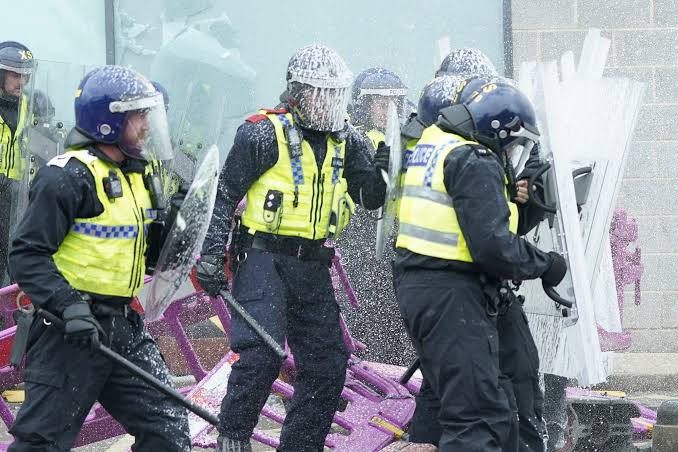The number of mobile phones stolen in London has almost tripled in just four years, rising from 28,609 cases in 2020 to 80,588 in 2024, according to new figures from the Metropolitan Police Service. The statistics reveal that three-quarters of all stolen phones in the United Kingdom are now taken in the capital, making London the epicentre of a growing crime wave that police say is being fuelled by global demand for second-hand devices.
The Metropolitan Police has described its latest crackdown as the largest operation against phone theft in UK history, following the dismantling of an international smuggling gang accused of shipping up to 40,000 stolen phones from Britain to China over the past year. The investigation began last Christmas Eve when a theft victim tracked their stolen iPhone to a warehouse near Heathrow Airport. Inside, security officers discovered the missing device among almost 900 others, all packed for export. The find led detectives to launch a far-reaching operation that uncovered a sophisticated network responsible for exporting what police believe could be up to 40 per cent of all stolen phones in London.
Read Also:
Mahmood: Police to gain new powers to curb repeat protests
Metropolitan police arrested 335 over support for proscribed group Palestine action
Starmer vows more police in Jewish areas after Manchester synagogue attack
Eighteen suspects have been arrested so far, including two Afghan nationals and one Indian national, each charged with conspiracy to receive stolen goods and to conceal criminal property. Police also recovered more than 2,000 devices from properties linked to the suspects. Further raids last week led to the arrest of 15 more people, most of them women, in connection with theft, handling stolen goods, and conspiracy to steal. The raids were carried out across London and Hertfordshire in a series of dramatic dawn operations, some of which were captured on police body cameras.
Detective Inspector Mark Gavin, who led the investigation, described the case as one of the most complex and significant of his career. He said the discovery of the original shipment was the breakthrough that exposed a much larger criminal enterprise stretching from London’s streets to international smuggling hubs. Commander Andrew Featherstone, the Metropolitan Police lead on phone theft, said the force had succeeded in dismantling criminal networks at every level, from street snatchers to organised groups exporting tens of thousands of devices overseas.
Investigations show that many of these gangs specifically target Apple products because of their high resale value abroad. Street thieves are often paid up to £300 for each stolen handset, while the same phones can fetch as much as £4,000 on the black market in China, where their internet capabilities make them particularly desirable for users seeking to bypass online restrictions. According to Policing Minister Sarah Jones, the shift reflects a growing trend among criminals abandoning traditional offences such as drug dealing for the more profitable phone trade.
Despite the police successes, many victims have expressed frustration that officers often fail to act promptly, even when they can track their stolen phones using apps like Find My iPhone. One victim, 29-year-old Natalie Mitchel, had her phone snatched on Oxford Street and said she now feels uneasy whenever she visits central London. She believes the Metropolitan Police should deploy more CCTV surveillance and undercover officers to tackle the issue, arguing that many cases go unresolved because the force lacks the capacity to respond to every report.
The Met insists it is stepping up efforts, pointing to a 13 per cent reduction in personal robbery and a 14 per cent fall in theft this year. The force has increased patrols in hotspot areas and turned to social media platforms such as TikTok to highlight arrests and raise public awareness. However, these measures come at a time of financial strain, with the Met facing a £260 million budget shortfall that will require it to cut almost 2,000 officers and scale back certain services over the next year.
The Office for National Statistics reported that theft from the person increased by 15 per cent across England and Wales in the year ending March 2025, reaching its highest level since 2003. Experts say London’s dense population, large tourism sector, and booming trade in refurbished smartphones have made it especially vulnerable. More than 20 million tourists visit the city each year, and busy districts such as Westminster, the West End, and major transport hubs remain hotspots for pickpocketing and phone snatching.
Police advise anyone whose phone is stolen to report the incident immediately, block the device through their network provider, and alert their bank to prevent fraudulent transactions. As London continues to battle this fast-evolving criminal enterprise, the Met’s unprecedented operation has provided rare hope that the tide of phone theft may finally begin to turn.



